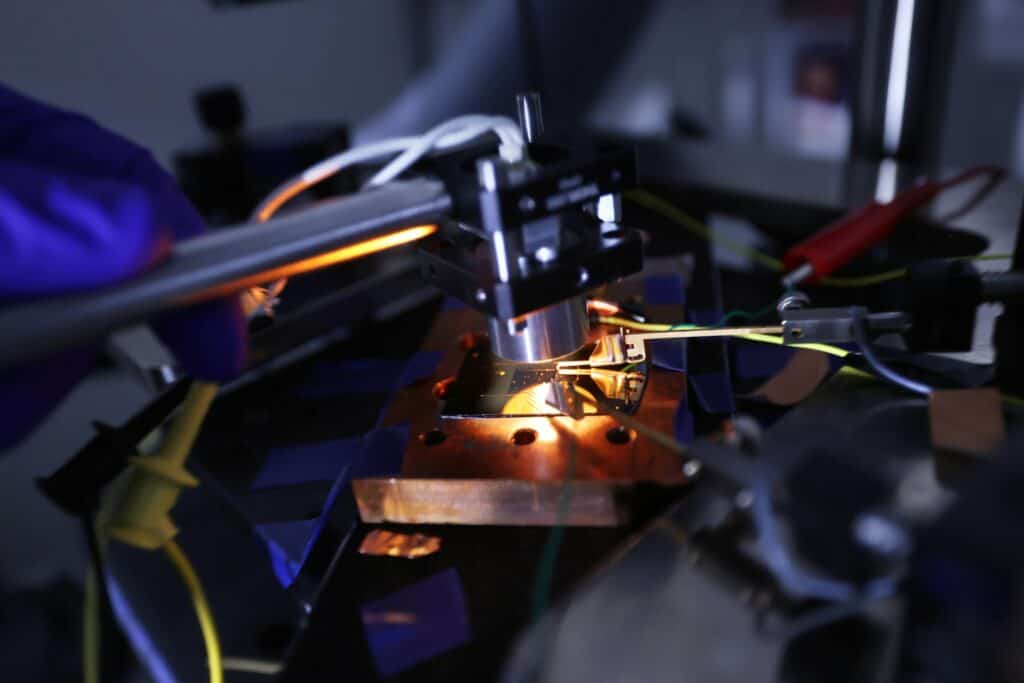Sustainable Energy

From energy-harvesting textiles to better batteries and solar cells, the Chemical Engineering department is doing research that will enable increased use of renewable energy sources. For example, we are working on new thermochemical and biochemical pathways to renewable liquid biofuels and also examining how they perform in an engine. We are making new materials for hydrogen storage and for electrocatalysis. We are also doing fundamental and applied research related to electrochemical systems for energy storage and energy conversion.
Andrew Allman
Professor Andrew Allman and his research team are working on developing optimization frameworks for designing, operating, and controlling the next generation of chemical, energy, and biological production systems in an economic and sustainable manner. Our team is developing optimization tools which enable efficient on-site coupling between renewable energy and chemical production. as well as which support the necessary paradigm shift in global chemical production infrastructure to distributed, small scale, and time-varying production, thus mirroring the change being seen in global energy production.
Bryan Goldsmith
Professor Goldsmith’s research team utilizes electronic-structure theory, molecular simulation, machine learning, and theory to understand catalytic processes and materials for sustainable applications, e.g., exploring advanced catalysts for natural gas and CO conversion; understanding catalyst stability; modeling reaction kinetics; and screening for novel materials using big-data analytics tools.
Jovan Kamcev
Professor Kamcev and his research group work on improving material properties to enhance their performance and decrease energy consumption of various environmental applications.
Andrej Lenert
Professor Andrej Lenert and his team focus on solar thermal systems that utilize the full spectrum of sunlight and are compatible with inexpensive long term storage
Xiaoxia (Nina) Lin
Professor Nina Lin and her research group investigate communities of microbes and engineers symbiotic relationships among them to turn biomass into biofuel.
Suljo Linic
Professor Suljo Linic and his research group’s studies in catalysis have implications fuel cells, biofuels, batteries and for the greener and more energy-efficient generation of industrial chemicals.
Eranda Nikolla
Professor Nikolla and her group focus on the development of catalytic materials for sustainable energy conversion and storage processes. Current projects involve development of catalytic materials for low temperature fuel cells and electrolyzers, metal-air batteries, solid oxide electrolyzers, thermal and electrochemical conversion of CO2 and recycling of plastic waste.
Max Shtein
Professor Max Shtein and his research group explore organic and inorganic materials that could convert both high- and low-energy photons to electricity. The team also designs materials that can mimic the energy conversion pathways of high efficiency inorganic solar cell materials, such as silicon. In addition, group members are developing woven-fiber textiles capable of harvesting energy.
Nirala Singh
Sustainable energy research in the Singh Lab focuses on methods to use and store renewable electricity or solar photons. Projects include development of redox flow batteries for energy storage, production of fuels and chemicals from sustainable energy, and use of renewable electricity to clean up waste streams.
Singh Group
Angela Violi
The Violi group is pushing the boundaries of sustainable fuel design using cutting-edge
computational tools. We leverage molecular dynamics, machine learning, and advanced
theoretical methods to unravel the complex chemistry of fuels, from reaction pathways to
emissions formation. Our research focuses on optimizing fuel performance for diverse
applications, including the development of sustainable aviation fuels, while minimizing
environmental impact. This work contributes to solving critical energy challenges and shaping
the future of sustainable transportation.
Fei Wen
Lignocellulosic biofuels represent a promising alternative to fossil fuels for transportation. Professor Fei Wen and her group employ engineering strategies ranging from biocatalysis to synthetic biology to achieve one-step microbial conversion of biomass to ethanol.